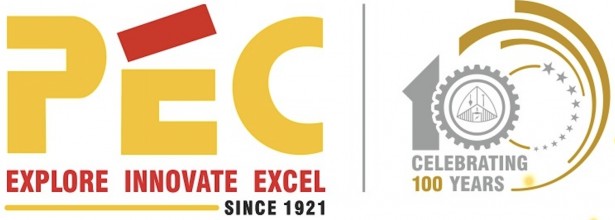Expert Lectures and workshops organized by Electronics and Communication Engineering department, PEC University of Technology, Chandigarh during the Industry-Academic Expert Lecture week, 6th April to 10th April, 2015.

The Electronics and Communication Engineering department, PEC University of Technology, Chandigarh successfully organised a series of expert lectures and workshops on the emerging areas of Electronics and Communication during the Industry-Academic Expert Lecture week from 6th April to 10th April, 2015. A total of 04 expert’s lectures and 2 workshops were organised. The event was successfully coordinated by Dr. Arun Kumar Singh, Assistant Professor under the guidance of Prof. Neena Gupta, Head, Department of Electronics and communication Engineering. The expert lectures and workshops were attended by a large number of undergraduate, postgraduate and PhD students, and Faculty members. The lectures were highly enlightening particularly for the younger generation of engineers / researchers to understand the technology innovations taking place in the field, around the world. The experts invited were Prof. Hema Ramachandran, Professor, Raman Research Institute, Bangalore, Dr. Meena Mishra, Scientist ‘F’, MMIC Group, SSPL, DRDO, New Delhi, Dr. Manish Hooda, Scientist E and Mr H S Jattana, Scientist E from Semi-Conductor Laboratory (SCL), Mohali The Industry-Academic Expert Lecture week was started on 6th April, 2015 with an expert lecture by Prof. Hema Ramachandran on Brain Computer Interfaces (BCI), which is a communication medium between the brain and an electronic system which can control actions using the brainwaves without any actual movement. She also explained various designing techniques for invasive and non-invasive electrodes that are generally placed inside or outside the brain in addition to the Steady State Visually Evoked Potentials (SSVEP) and motor imagery a kind of signals to visualise stimulation at specific frequencies. She further demonstrated few videos of experiments performed on monkeys and human to control the robotic arms, computers etc. Dr. Meena Mishra, Scientist at MMIC group explained the use of micro-and nanotechnology in the defence sector. She explained the operating principles of various types of Field effect transistors (FETs) such as MOSFET, CMOS, MESFET etc. The importance of selection of material for the fabrication of such devices was also highlighted. The fabrication procedures/steps were explained showing the images of state-of-art fabrication tools. The electrical characteristics (DC/RF) of transistors for various applications including switching, power amplification etc. were also been demonstrated to the students.Dr. Manish Hooda, who is actively working on micro-electro-mechanical systems (MEMS) at SCL, Mohali, gave a basic idea about MEMS. He started with the explanation of basic physical concepts behind such devices and their potential applications varying from mobile to medical to space applications. The fabrication process and characterisation techniques were explained during his presentation. He further demonstrated various fabrication facilities available at SCL Mohali. Another scientist from SCL, Mohali, Mr. H. S. Jatana delivered an expert talk on “Analog Design and MEMS”. He discussed the design aspects for designing analog VLSI circuits and applications of MEMS in day to day life. In addition to the above mentioned expert lectures, two workshops were also organized in the department during this week. The students were also exposed to the Design of MOSFET in 2D and 3D with mixed mode simulation during the workshop on Visual TCAD conducted by Mr Amit Saini, Technical Director, Cader Design Systems, New Delhi followed by the hands on training on VISUAL TCAD tool. In another workshop, Mr Varun Bhadana, VLSI Application Engineer, Entuple Technologies, New Delhi demonstrated the Custom IC design flow and ASIC design flow. The participating students were encouraged to design such ICs during the workshop. The series of expert lectures and hands on experience during the workshops were highly
applauded by the students.






